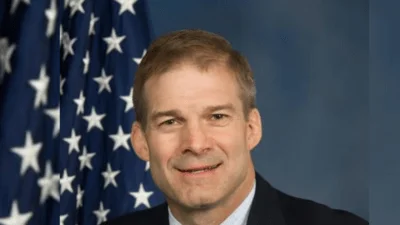Congressman David Price (D-NC), Chair of the Transportation, Housing and Urban Development and Related Agencies Appropriations Subcommittee, delivered the following remarks at the Subcommittee's hearing on "Stakeholder Perspectives: Passenger Rail Development":
Good morning, everyone. The hearing will come to order.
Today, the subcommittee will hear testimony from a diverse group of witnesses about passenger rail development.
Joining us are:
Jason Orthner; Rail Division Director, N.C. Department of Transportation,
Stephen Gardner; Senior Executive Vice President of Commercial, Marketing, and Strategy, Amtrak, and
DJ Mitchell; Assistant Vice President of Passenger Operations, BNSF Railway.
Thanks to each of you for being here.
Intercity passenger rail moves millions of Americans every year, and it serves as an economic engine for rural and urban communities.
Rail service, when running smoothly, offers passengers an extremely attractive travel option compared to car and aviation alternatives, especially over short and medium distances.
While Amtrak provides the majority of passenger rail service in the U.S., numerous states have stepped up with their own funding and equipment to support specific routes and improve service and frequency.
Meanwhile, much of the track utilized by passenger trains outside the Washington-to-Boston Northeast Corridor are owned by freight railroads, which must balance their operational needs with passenger service.
I’m interested to hear about the challenges and opportunities facing our rail stakeholders-including investment priorities, ongoing PTC implementation, and the future of intercity passenger rail.
The rail ecosystem is complex, and the various industry and government entities operating within this system must work together in order to achieve growth for the future.
In the last several fiscal years, this subcommittee has provided more than $1.6 billion in funding for intercity passenger and freight rail improvements through various grant programs authorized by the FAST Act. This amount is in addition to our annual appropriation for Amtrak, which was just shy of $2 billion in the 2018 and 2019 fiscal years.
These incremental investments build upon more than $10 billion allocated for high-speed and intercity passenger rail in the Recovery Act and the FY 2010 appropriations bill. Unfortunately, we faced a major gap in our commitment to rail during the intervening years, but we are on stronger footing now.
States like North Carolina and Washington, for example, have used Recovery Act dollars and subsequent DOT grants on several major projects to improve track, separate at-grade crossings, expand stations, and purchase signals and other equipment.
These investments in passenger rail not only improve service, they help eliminate freight bottlenecks, improve safety in congested corridors, and contribute to economic growth.
These and other success stories provide us with a useful roadmap, but if we want to accelerate this progress and replicate it, we will clearly need more funding.
Maintenance needs continue to grow, particularly in the aging Northeast Corridor, and establishing new passenger rail corridors in the Southeast, Midwest, the Gulf Coast or other regions will require a major commitment from Congress.
At the same time, we need to ensure that low-interest loans and other innovative tools supported by USDOT, such as private activity bonds which Brightline has employed to build passenger rail in Florida, remain viable for rail projects as a key source of financing.
Finally, we need better coordination and cooperation between Amtrak, the states, and their freight rail partners, particularly as freight and passenger traffic continues to grow.
I hope this hearing will continue to facilitate these working relationships and help inform our subcommittee as we shift our attention to drafting a Fiscal Year 2020 appropriations bill.
Now, I’d like to recognize our distinguished Ranking Member, Mr. Diaz-Balart, for his opening statement.
Source: U.S. Department of HCA









